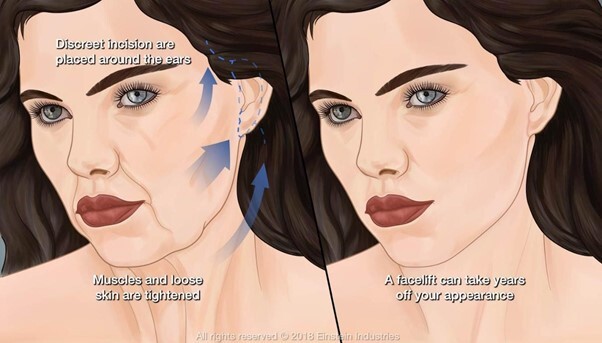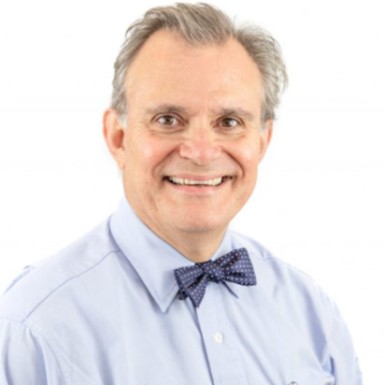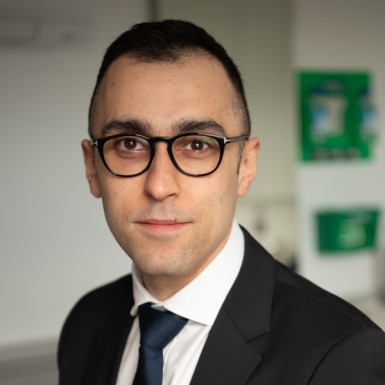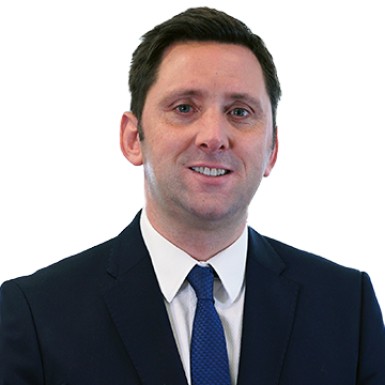As we age the skin on your face and neck become loose and we start to lose muscle mass in this area. Sun exposure, daily stress, smoking, weight changes, and repetitive facial expressions increase the appearance of ageing on your face and neck. Drastic weight loss can accelerate facial aging and sagging skin.
Signs of ageing include:
a sagging jawline,
the appearance of jowls
mouth turning downward
cheeks start to drop
neckline can slacken
with excess fat, a turkey neck may form
Loss of natural fat beneath the skin also contributes to facial aging, making the skin appear more hollow and accentuating sagging.
A full facelift (rhytidectomy) and neck lift (platysmaplasty) are two of the most commonly performed surgeries to dramatically reduce the signs of ageing on your face, neck, and surrounding areas. A full facelift or face lifting surgery improves sagginess or droop. The full facelift is more extensive than a neck lift. A neck lift, also known as a platysmaplasty, can be suggested to reduce fatty deposits in the neck along with tightening excess or sagging skin. This procedure is particularly effective in addressing loose skin that contributes to an aged appearance. Facelift surgery at our clinic involves a comprehensive approach, including detailed preoperative preparation and attentive postoperative care to ensure optimal results.
When combined, these procedures show a refreshed face and a more taught neckline.
At Kensington Medical we focus on facelifts and necklifts. Our experienced surgeons have decades of experience with outstanding results and are skilled in performing complex facial rejuvenation procedures. Book a consultation to see facelift before and afters and find out which facelift is best for your facial structure. You may not require a full facelift, it may be a combination facelift. A strong bone structure can contribute to optimal facelift results and is considered during the assessment. By booking a two step consultation you can find out how to achieve the best facelift results.
A facelift is a cosmetic surgery procedure to tighten your skin and muscle below your eyes, lift your jowls and lift your mid face droop. Facelift surgery involves tightening and repositioning the facial muscles to restore youthful contours. The neck lift helps you to tighten the skin around your neck by removing fat and sag. Necklift surgery is a specialized procedure for removing sagging skin and tightening the neck and jawline, often performed alongside facelifts for comprehensive facial rejuvenation. A face lift and neck lift can be combined in one procedure. Various neck lift procedures can be tailored to meet individual needs, ensuring optimal results. Why combine a facelift and neck lift? How does it help you? Keep reading to learn more.
As we age, the face and neck area can start to sag. A combined facelift and neck lift can help to rejuvenate your overall face with amazing results. The procedure targets the most visible signs of aging, such as sagging skin and jowls, by tightening tissues and removing excess fat. Benefits include:
Uplifted cheek area
Lift the sagging cheek area
Reduce wrinkles in the area lifted
Reduce jowls
Removal of nasolabial folds or nose to mouth lines
Tighter, more defined jawline
Reduce jowls
Tighter neck area
A full facelift addresses multiple regions, including the jaw line, cheeks, neck, and upper face, to improve sagging skin, wrinkles, and overall facial contours. The procedure also enhances the jaw line and tightens neck skin for a more youthful appearance.

In a combined surgical procedure, you undergo a facelift and a neck lift in a single surgery. A full face lift and neck lift is a procedure that can help patients suffering from the effects of ageing on their forehead, jowls, cheeks, and neck. The area of skin being operated on is usually up to the hairline.
The exact incision pattern depends on the specific changes discussed with your surgeon. These incisions are designed to ensure minimal scarring, enhancing the aesthetic outcome. Incisions are often hidden within natural creases to further minimize visible scarring. You will also notice an improved jawline after this procedure, as well as more defined cheeks.
A second cut is made under the chin for the neck lift, which entails lifting and tightening the skin and muscles of the neck. Tightening the underlying facial muscles is a key step in restoring youthful facial contours and reducing sagging. The surgeon might move the fat from the jowls and neck at this time. For patients seeking less invasive options, a short scar neck lift can be considered, which involves smaller incisions and quicker recovery times. Some of these procedures can be performed under local anaesthetic, offering reduced risks and a faster recovery. The stitches will be in front of and behind your ear.
The excess skin is then moved to the contours of your face and neck. A separate incision under the chin might also be necessary for liposuction in this area and muscle repair. Scars are hidden by your hairline and the natural contours of the face.

A neck lift can greatly enhance the appearance of the neck, creating a more youthful and defined look. By removing excess skin and fat, tightening the neck muscle, and repositioning the underlying tissues, a neck lift can help to eliminate the appearance of a “turkey neck” or “double chin.” This can lead to a significant boost in self-confidence, allowing individuals to feel more comfortable and confident in their own skin.
The results of a neck lift procedure can be long-lasting, with many patients enjoying their improved appearance for 10-15 years or more. However, it’s essential to maintain a healthy lifestyle, including a balanced diet and regular exercise, to ensure the longevity of the results.
A neck lift procedure can be combined with other facial rejuvenation procedures, such as a facelift, eyelid lift, or facial fat transfer, to create a comprehensive rejuvenation plan. This can help to address multiple areas of concern, resulting in a more youthful and refreshed appearance.
The first step in preparing for a full facelift is to schedule a consultation with a qualified and experienced plastic surgeon. During this consultation, your surgeon will assess your facial structure, skin laxity, and overall health to determine if a full facelift is right for you. They will also discuss the procedure in detail, including the risks and benefits, and answer any questions you may have.
It’s essential to choose a plastic surgery specialist who is on the specialist register and has extensive experience in performing facelift procedures. Selecting experienced surgeons is crucial for achieving optimal aesthetic results and ensuring your safety. Be sure to ask about their qualifications, experience, and before-and-after photos of previous patients.
Additionally, be prepared to discuss your medical history, including any previous surgeries, medical conditions, and medications you’re currently taking. This information will help your surgeon determine the best course of treatment for you.
By following these steps, you can ensure a safe and successful full facelift procedure that meets your individual needs and goals.
We offer specialist facial rejuvenation treatments in the heart of London. Our team of expert plastic surgeons is dedicated to providing you with a comprehensive and personalised experience. With our expertise in facial cosmetic surgery, we can help you fight back the years and delicately recover your facial freshness and youthful appearance.
Ready to take the next step? Book a consultation to discuss your goals, get personalised advice, and learn more about your facelift and neck lift options.
We offer specialist facial rejuvenation treatments in the heart of London. Our team of expert plastic surgeons is dedicated to providing you with a comprehensive and personalised experience. With our expertise in facial cosmetic surgery, we can help you fight back the years and delicately recover your facial freshness and youthful appearance.
Consultation
Your journey begins with a dialogue between you and your surgeon: the pre-operative consultation, which is central to the operation's success. At Kensington Medical, patients interested in surgery undergo several consultations with the surgeon. We are keen for our patients to be fully informed before deciding whether to proceed with surgery. So, we encourage them to see the surgeon more than once and ask as many questions as they wish. Typically, our patients go through two pre-operative consultations.
The first consultation tends to be face-to-face. During it, the surgeon will:
Following the first consultation, we will:
A second consultation is often necessary for the following reasons:
The second consultation can also be face-to-face. Alternatively, it can be via a video call.
Following your consultations, our medical team is always available should you have further questions before your surgery.
Pre-Operative Care
Once you have decided to go ahead with surgery, we will book your operation in one of our specialist cosmetic surgery hospitals.
Before your operation, you will be sent a health questionnaire. This will be reviewed by your anaesthetist, who may call you to discuss specific aspects of your medical history. In certain cases, you may be required to attend the clinic for blood tests. This will be discussed with you by one of our medical team members before your scheduled appointment date.
We will also issue you with preoperative instructions. In particular:
On The Day Of The Procedure
You will arrive at least one hour before the time of your procedure. The nursing staff at the hospital will monitor your blood pressure and other relevant essentials. You will then meet your anaesthetist and surgeon for a final markup.
The actual operation involves carefully sculpting and repositioning underlying tissue and fat within the face to create a more youthful contour around the eyes, chin, neckline, and jawline area. The result is smoother skin texture while preserving natural facial expressions throughout different movements. The incisions are then closed using sutures. This will leave small scars hidden along areas such as the hairline or scalp, which can fade over time depending on how well they are cared for.
We typically perform this procedure under general anaesthesia. It lasts 2.5h to 3.5h.
Post-Operative Care
Aftercare following a facelift is essential to ensure we achieve optimal results.
Following your surgery, you will be transferred to the hospital’s recovery room, where the nursing staff will ensure that your recovery is smooth. You should stay there for two to four hours, depending on the surgery. Once the nursing team are happy that you are in a fit state to go home, you will leave the hospital accompanied by a friend or a family member. You should also arrange for someone to stay with you overnight for the first night following your operation. Generally, post-operative pain is minimal, but you will be given pain killers in case you need them.
Once you have been discharged from the hospital, our nursing team will be available 24/7 to ensure your post-operative journey is comfortable and pain-free and to field any questions you may have.
Your surgeon will see you a number of times in the weeks following your operation to monitor the facial skin and scars and to support you:
Bruising and swelling can last up to one month following this surgery.
Post-Operative Instructions
Our medical team will provide detailed aftercare instructions based on your current health status and treatment received, including when it is appropriate for you to resume normal activities such as exercise, wearing makeup, and strenuous movements. It is essential to follow these instructions carefully to avoid complications or risks associated with the procedure.
Protecting your face from sun exposure is especially important, as it can cause scarring, discolouration, and other unwanted side effects. Wear sunscreen when outdoors and use hats or umbrellas if possible. It would be best to avoid strenuous activities involving facial movements, such as exercise and sports, until cleared by our medical team at Kensington Medical.
By following the instructions of our medical team and taking precautions to protect your face, you can ensure that you achieve the best results from facelift surgery. Following a healthy lifestyle with sufficient rest, nutrition, and hydration is essential for healing and maintaining long-term effects. It is strongly recommended to avoid smoking and alcohol consumption before and during the recovery period.

Mr David Gateley

Mr Amir Sadri

Mr Paul Tulley
What are the risks associated with this a full facelift & neck lift?
There is always a risk for hematoma (blood collection around the incision site), scarring, nerve injury, temporary hair loss, or skin loss. Additionally, as with all surgeries, there is also a small risk from anaesthesia, leading to medical complications such as pneumonia or heart failure. To minimise these risks, we follow strict safeguards. Concerning anaesthesia, you will be administered general anaesthesia and monitored by an anesthesiologist throughout your entire procedure.
What is the recovery time from a full facelift & neck lift?
The recovery time takes a full four to six weeks. Discomfort may last from two to four days. You should take your pain medication as prescribed. Any stitches or staples are removed in a week. There will be some bruising and swelling, which will subside over the next one to two weeks.
What scarring can be expected from a full facelift & neck lift?
There can be scarring where the incisions were made. However, these are hidden by the natural contours of the face and ear as well as the hairline.
How soon will I see results / are they permanent?
You'll see visible results in four to six weeks. However, it can take three to four months to see the full effect.
How much does a full facelift and neck lift cost?
A full face lift costs from £10,500. It can vary based on the type of operation that is required such as a SMAS, Deep Plane, Mini or lower jowl lift or mid facelift plus the anaesthesia involved and whether an overnight stay in hospital is required. The best option is to book a consultation with one of our expert facial plastic surgeons so that you can discuss what you are hoping to achieve. Your surgeon will ask if you have any important events coming up or a suggested timeline. In this important first meeting, your plastic surgeon will discuss the costs involved.
How should I prepare for a full facelift & neck lift?
Before the surgery, you'll meet with the surgeon for a pre-op visit to go over your procedure. At this time, they'll discuss any special preparations you might need to take before. Also, at this appointment, you'll complete a medication review. The surgeon will advise you of what medications to stop before the surgery and when you can start retaking them.
For example, you'll need to stop blood-thinning prescriptions two weeks before the procedure. On the morning of your treatment, you'll need to wash your face and hair with germicidal soap. As with all surgeries using anaesthesia, you need to stop eating eight hours before your arrival time.
When will I see before and after images of full facelift & neck lift?
During your consultation, your surgeon will share before and after images of previous surgeries that they have performed so that you can see the types of results you should expect.
At Kensington Medical, our experience and expertise ensures your journey to a refreshed and confident facelift and neck lift result. The starting point of this process is a consultation with your facelift or neck lift surgeon. In the face to face consultation your plastic surgeon will find out what you want to achieve, what are the best facelift and necklift options for your facial structure and skin and muscle laxity, your timelines and any specific dates you are working towards.
Your plastic surgeon will show you before and after photos of face lift and necklift past patients. They will recommend you bring along some photos of when you were younger.
If you're having multiple procedures done at once, these plans will combine all aspects into one personalised program.
Facelift and necklift consultations can be arranged in either Harley street, London or our Wimbledon location. To find out what facelift is best for you fill in the contact us form or phone for information. We are hear to help you.

Medically reviewed by Mr David Gateley MA, FRCS, FRCS (Plast), GMC number 2939470 on 18 August, 2025.